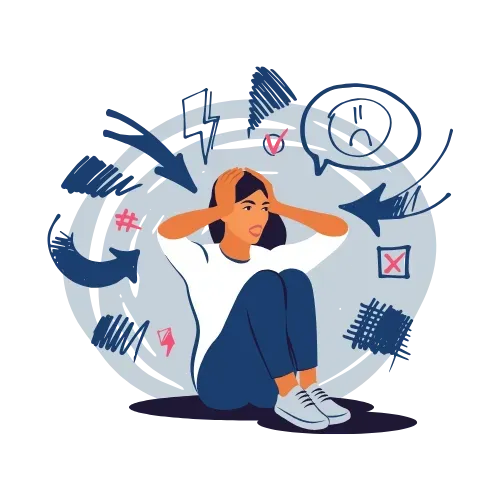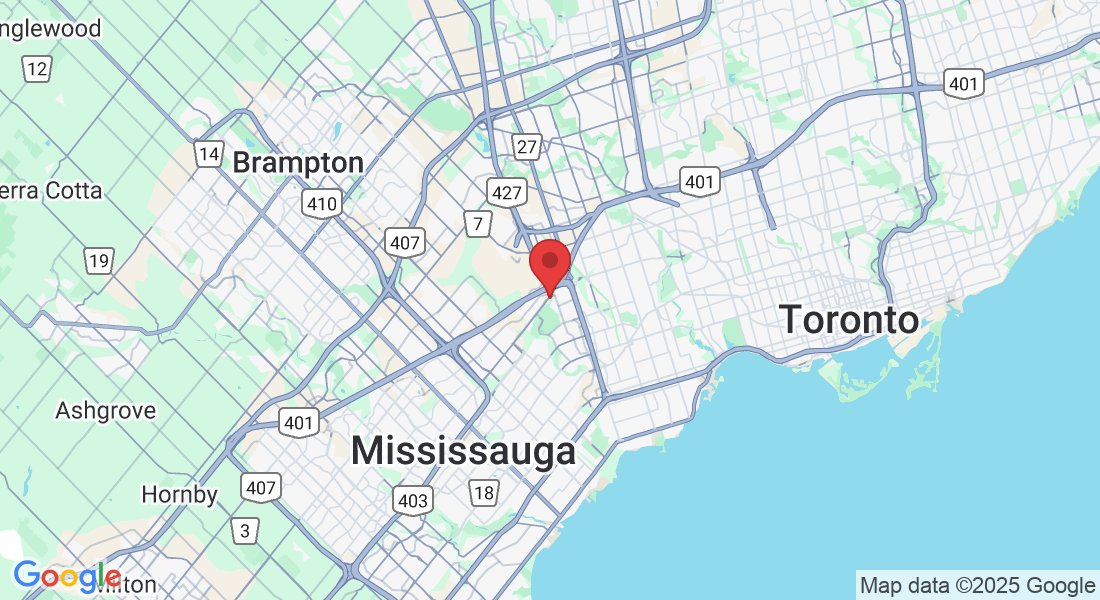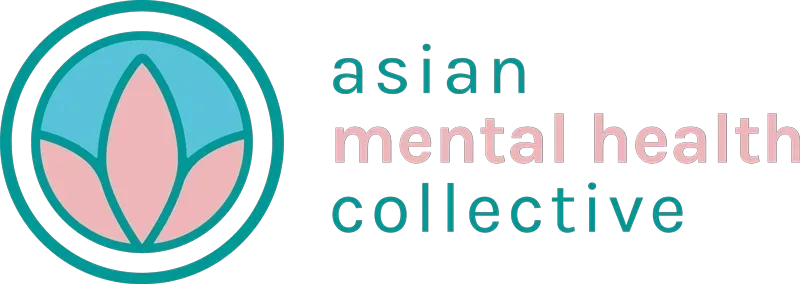Trauma Therapy
Find healing, resilience, and peace with professional therapy designed to help you navigate trauma and PTSD.
What is considered Trauma?
Trauma refers to the emotional response someone has to a disturbing event that overwhelms their ability to cope. It can stem from various sources—childhood experiences, accidents, abuse, violence, illness, or significant life changes. Unlike normal stress that dissipates when the trigger resolves, trauma embeds itself deeply, creating lasting psychological impacts that can affect behaviour, relationships, and overall wellbeing.
At Clear Moon Therapy, I understand that trauma manifests uniquely for each person. My specialized trauma therapy services in the Greater Toronto Area help you process these experiences in a safe, supportive environment, allowing you to regain control and build resilience for healthier living.


What Are the Symptoms of Someone Dealing With Trauma?
Trauma often reveals itself through distinct patterns of thought, emotion, and behaviour that can significantly impact daily functioning:
"I haven't driven since the accident six months ago. Even thinking about getting behind the wheel makes my heart race and my palms sweat. I know I need to drive for work, but I just can't seem to push past this fear."
"Growing up with critical parents has left me constantly second-guessing myself. I apologize excessively at work and avoid sharing my ideas, always assuming others will find them worthless. This childhood pattern follows me everywhere."
"Since the incident, I keep having flashbacks—smells, sounds, or certain situations trigger intense memories and panic. I've started avoiding people and places that remind me of what happened, but it's shrinking my world."
Why Work With a Therapist to Overcome Your Trauma?
Working with a trained trauma therapist offers numerous evidence-based benefits:
Neurobiological Healing: Research published in the Journal of Traumatic Stress shows that trauma therapy significantly reduces activity in the amygdala (your brain's fear center) while strengthening prefrontal cortex function, improving emotional regulation and reducing hypervigilance.
Long-lasting Relief: According to the Canadian Psychological Association, 70% of individuals who complete trauma-focused therapy experience significant symptom reduction that persists during follow-up assessments one year later.
Improved Relationships: Studies from the Canadian Journal of Counselling and Psychotherapy demonstrate that resolving trauma leads to healthier attachment patterns, improving personal and professional relationships.
My approach at Clear Moon Therapy utilizes proven therapeutic modalities including:
Progressive Exposure Therapy: Gradually confronting trauma memories in a safe environment to reduce their emotional impact
Polyvagal Therapy: Teaching nervous system regulation techniques to decrease trauma responses
Cognitive Behavioural Therapy (CBT): Identifying and changing unhelpful thought patterns related to traumatic experiences

Frequently Asked Questions About Trauma Therapy
What is trauma treatment with therapy?
Trauma treatment through therapy is a specialized approach that helps individuals process and heal from distressing life experiences. Using evidence-based methods like Cognitive Behavioural Therapy, progressive exposure, and polyvagal techniques, trauma therapy addresses both the psychological and physiological impacts of trauma. Unlike general counselling, trauma-focused therapy specifically targets trauma responses in your body and mind, creating pathways for lasting healing.
How does therapy help trauma?
Therapy helps trauma by creating a safe environment to process difficult experiences while teaching effective coping strategies. A skilled trauma therapist helps you understand your trauma responses, regulate emotions, and gradually reconsolidate traumatic memories so they lose their overwhelming emotional charge. Research from the Centre for Addiction and Mental Health (CAMH) shows that therapy significantly reduces trauma symptoms by helping individuals separate past experiences from present reality, enabling them to move forward without being controlled by their trauma history.
What therapy technique is best for trauma?
While several effective techniques exist for trauma, the most beneficial approach is often personalized to your specific needs. Research from the Canadian Psychological Association suggests CBT, progressive exposure, and polyvagal therapy show excellent outcomes for most trauma types. The "best" technique depends on your trauma history, symptoms, and preferences. At Clear Moon Therapy, I assess your unique situation to determine which evidence-based approaches will be most effective for your healing journey.
What do you do in trauma psychotherapy?
In trauma psychotherapy, you'll work through several phases tailored to your needs. Initially, you'll build a safe therapeutic relationship while learning stabilization techniques to manage overwhelming emotions. As therapy progresses, you'll process traumatic memories at your own pace using structured approaches that reduce their emotional impact. Finally, you'll integrate these experiences into a coherent narrative and develop skills for post-traumatic growth. Throughout this process, your therapist provides guidance, support, and specialized interventions based on proven trauma resolution models.
How long does trauma therapy take?
The duration of trauma therapy varies based on several factors including trauma complexity, severity of symptoms, and your personal healing pace. For single-incident trauma, significant improvement typically occurs within 12-16 sessions. Complex or developmental trauma may require longer treatment, often 6-18 months of regular sessions. Research published in the Canadian Journal of Psychiatry indicates that while some symptom relief often occurs within the first month of treatment, comprehensive healing from complex trauma requires patience and consistent therapeutic work.
How do you know if you need trauma therapy?
You might need trauma therapy if you notice persistent symptoms following difficult life experiences, such as intrusive memories, nightmares, emotional numbness, hypervigilance, relationship difficulties, or avoidance behaviours that interfere with daily functioning. If you find yourself struggling with reactions that seem disproportionate to current situations, experience sudden emotional overwhelm, or notice that certain triggers consistently produce strong emotional or physical responses, these could indicate unresolved trauma. Research shows that seeking help early can prevent trauma symptoms from becoming more entrenched and difficult to treat.
Free Resources to Get You Started
Trauma Recovery Workbook - A comprehensive guide by the Centre for Addiction and Mental Health with practical exercises for understanding and managing trauma symptoms
Bounce Back Ontario - A free skill-building program designed to help adults manage symptoms of depression and anxiety, including those related to trauma
Mind-Body Skills for Trauma Recovery - The Ontario Trauma Resource Institute offers free guided practices for nervous system regulation and grounding techniques
ConnexOntario - 24/7 helpline providing information about mental health services across Ontario, including trauma-specific resources
Trauma-Informed Care Resources - The Canadian Centre on Substance Use and Addiction provides education materials about trauma's impact on mental health and wellbeing
Hear From Others Who Have Worked With Me
Ready to Start? Book an Appointment Today
Taking the first step toward healing from trauma can feel overwhelming, but you don't have to face it alone.
My compassionate, experienced therapy approach specializes in trauma resolution and I'm ready to support your journey toward reclaiming your life and wellbeing.
Take the First Step Toward Healing
You don’t have to navigate trauma alone. Reach out today to schedule your free consultation, and begin your journey toward a brighter future.
© 2024. Clear Moon Therapy. All rights reserved.








